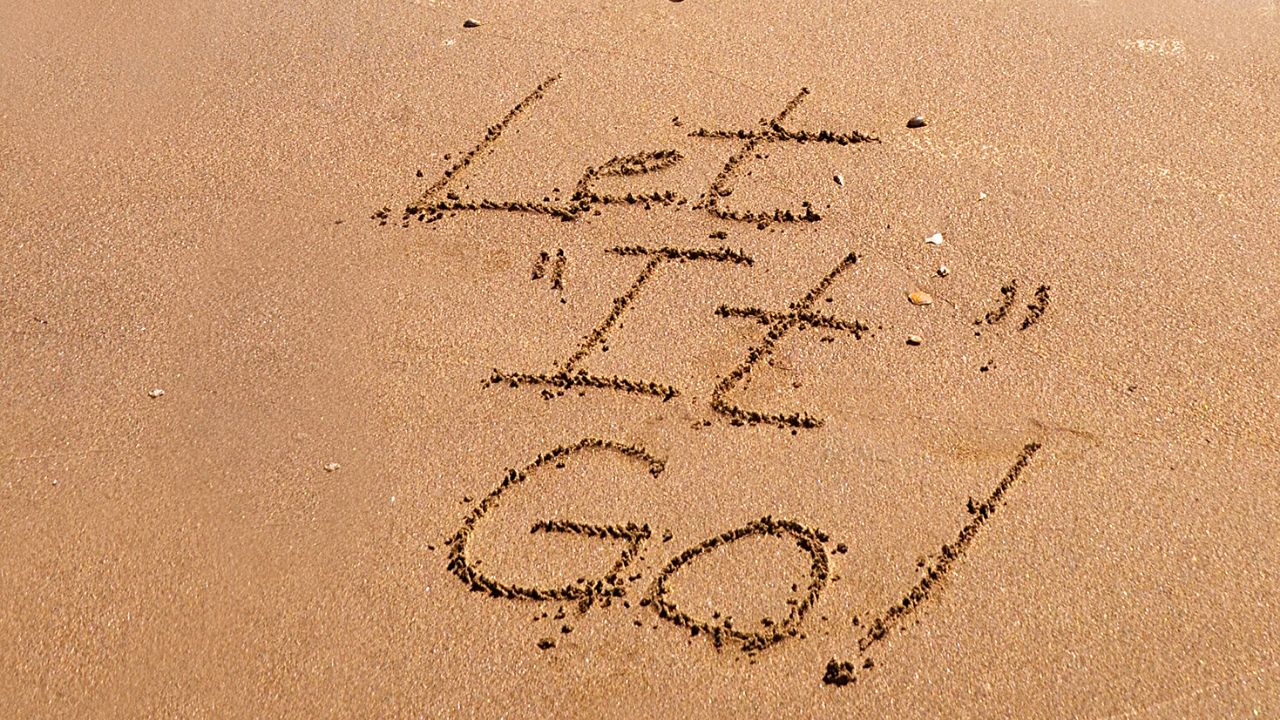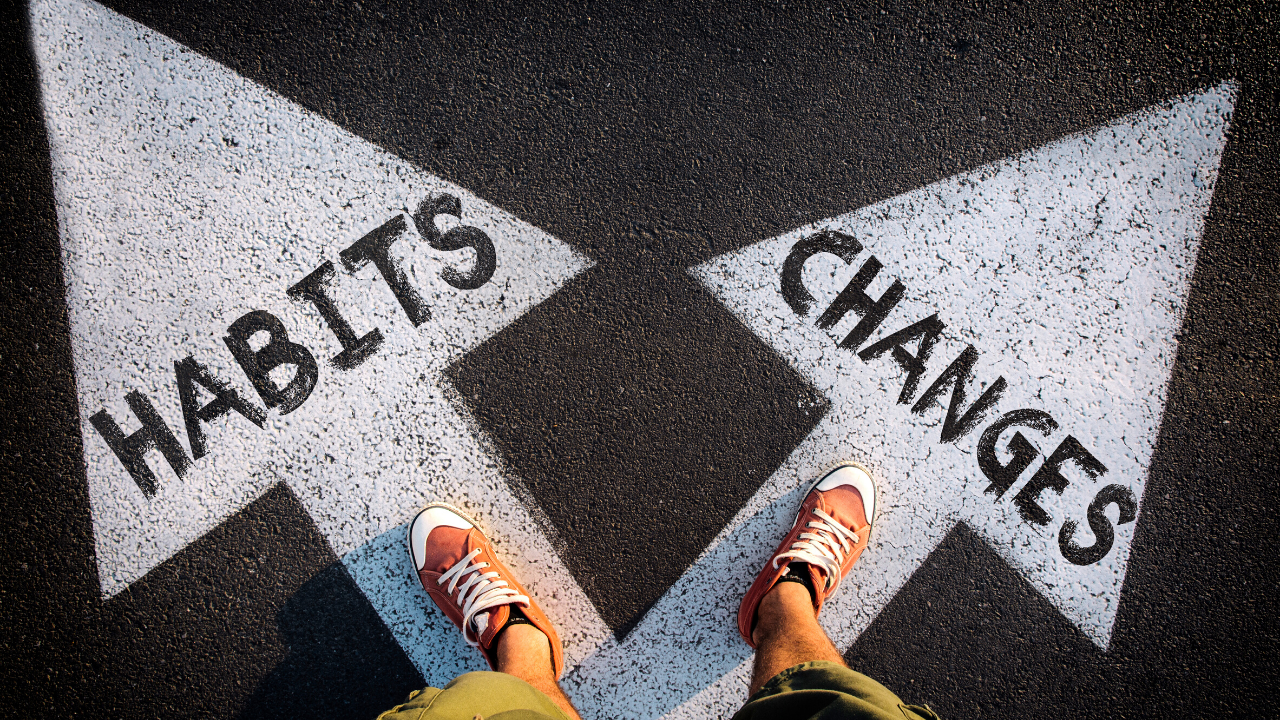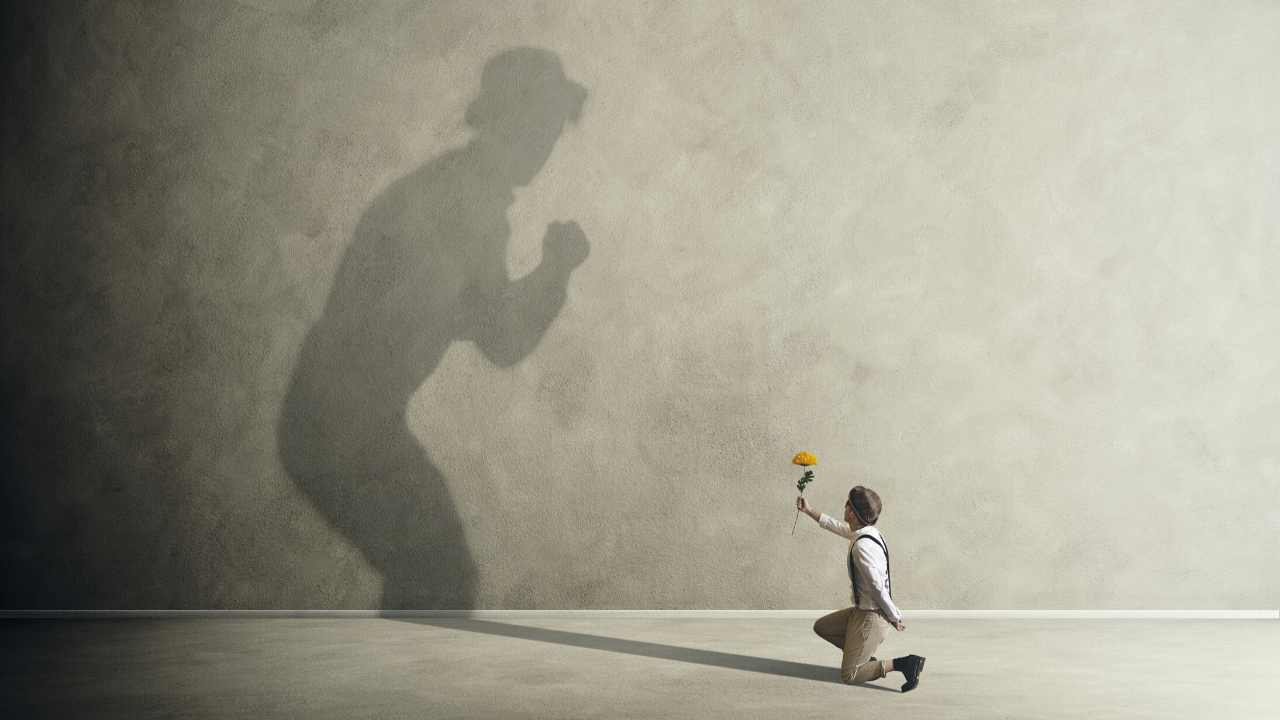|
"When I let go of what I am, I become what I might be." — Lao Tzu
Read the full article now ⬇︎
One of the most memorable scenes in motion picture history is when Raphael loses a sai in the film Teenage Mutant Ninja Turtles. Well, at least it was memorable for me, because Raphael was my favorite character. He wore the color red, you see, and kids base their preferences on such aesthetics. For this color preference, I greatly sympathized with Raphael when he lost the sai. Even though I was only seven years old, I had already experienced the pain of losing treasured things, so I knew what he was going through and I felt a pang of empathy for this turtle. When he brought the situation to the attention of his sensei, Master Splinter, my heart-felt pang widened when Raphael shouted, “I can get it back!” Raphael was frustrated, sad, and angry, grieving the loss of much more than just a physical object, but also what the object meant for his very identity. Master Splinter’s wise words to his student, however, contain a powerful lesson. When told about the lost sai he simply replied: “Then, it is gone.” Why Letting Go Matters It can be painful when things that matter are all of a sudden gone, but an important point is worth considering when this happens: When we allow ourselves to let things go, even things that matter dearly to us, our lives become prepared to hold things that are even greater. A telling illustration of this is the story of how to catch a monkey: To catch a monkey, drill a hole in a coconut, hollowing it out enough to put some food snuggly inside, and then chain it to a stake. When a monkey comes along and sticks his hand into the hole to grab the food, the clenched fist won’t be able to fit back out through the hole. Refusing to let the food go, the monkey becomes trapped. It’s tempting to see the coconut as the trap, but the monkey isn’t really trapped by any physical means; rather, the monkey is trapped by an idea that he won’t let go of, and this rigid belief is blinding to the fact “that if he opens his hand he’s free.” This parable is a wake-up call for all who grab onto things and can’t let go: Maybe it’s an old belief or habit, or maybe it’s an old dream or a current job. Maybe it’s a friend who treats you as a means to an end, or maybe it’s an emotionally or physically abusive family member. Maybe it’s the feeling of comfort, security, and stability, or maybe it’s resentment, grief, fear, jealousy, regret, or hatred. Whatever it is, remember that you can let go at any time; you just have to want freedom more than you want to hold a futile grip on the trap. 7 Practices for Letting Go The time to practice letting go is when you don’t have to, so if you want to minimize the pain of want, loss, and disappointment, then the time to start preparing for those moments is when the seas are calm. That way, if a storm should appear on the horizon, you’ll be well-prepared to face it. That’s not to say your ship won’t still sink! But it is to say that you’ll at least be prepared with a lifeboat should it come to that. What follows are seven ideas to help you get into the habit of letting go. This list isn’t meant to be exhaustive, but it is meant to get you started. Enjoy! 1) Give something away. Studies that have shown that people tend to value more what they own vs. what is owned by others. We see this all the time at tag sales when what we’re willing to pay for something is often much less than what we are willing to accept in compensation for the same item. This truth has been recorded as far back as ancient times when Aristotle observed: “For most things are differently valued by those who have them and by those who wish to get them: what belongs to us, and what we give away, always seems very precious to us." To counteract this tendency, take inventory of what you own. What items do you really value? What items would feel painful if you were to lose them? In a similar way, what items would you not miss? Chances are, you have more than a few things stuck in drawers, shoved into boxes, or hiding in closets than you even remember having. Consider that these items might make a bigger impact in our world if they were in the possession of someone who might actually use them, rather than being stuck on a shelf. Choose one of these items and find someone to give it to who would benefit from it. This is a small yet valuable step for practicing the fine art of letting go. 2) Change a daily habit.
We will never let go of what’s no longer serving us until we change what we do every day. Start by making new habits. Have a daily commute? Try taking a new route once in a while. Drink coffee at the same place every day? Try a new place, or maybe make coffee at home or at the office. The idea is to start where you are, start with one thing, and start making small changes. After all, to have what you have never had you must do what you have never done. Changing up your daily routine is a great way to practice letting go.
3) Learn a challenging new skill. One might wonder what learning a challenging new skill has to do with letting go, but the answer is quite simple and contains two important points: 1) Learning a challenging skill lets go of vanity, humbling ourselves to become a teachable beginner; and 2) learning a challenging new skill changes our life, allowing our former less-skilled self to pass away so as to allow our newer more capable self to usher in. For example, I gained two skills as an adult that I never thought I would: I learned how to solve the Rubik’s Cube and how to climb mountains (just not at the same time, of course—that would be dangerous). As a child these skills seemed completely out of reach and gaining them came with profound implications. What we can and can’t do shape our lives, informing our very understanding of who we think we are. I spent the first thirty years of my life without these two skills, and this lack of ability informed my assumptions about who I am and what I’m capable of. Gaining these skills, my assumptions about who I think I am become challenged, expanding the possibilities and forever changing my life. In this way, learning new skills is an effective strategy for practicing the art of letting go. 4) Face a fear. Fear is an effective defense mechanism and an excellent motivator, but it can also be a poison to progress, because while it can keep us safe from danger it can also hold us back from making even positive changes. To let go of fear, a simple practice is to face small fears when it matters the least, so you’ll be ready to face big fears when it matters the most. When I was younger I was afraid of balloons. Well, not so much the balloons themselves, but the popping of the balloons. I didn’t like having this fear, though, reasoning that if I allowed such an un-useful fear to get in my way then how would I ever be able to face very real fears when it matters most? To let go of this fear I found a fun way to face it: I learned how to make balloon animals! It took quite some time to make even the first twist of the balloon on my first attempt, but by facing this issue head on it didn’t take long for me to build a bridge and get over this silly little fear. Sure, balloons still pop, but by voluntarily exposing myself to this little annoyance the fear no longer has a hold on me. Letting go of small fears provides encouragement to let go later when the stakes are high. 5) Focus on process rather than on outcome. Frustration can often come from holding tight to a desired outcome, but it’s useful to remember that “you can tend to the causes, but you cannot control the results.” In other words, you can plant seeds in good soil and provide adequate water and sun, but you’ll never be able to control whether a flower grows. When you hold happiness hostage, tied tight to outcomes, you set yourself up for heartache; but, when you instead let go of outcomes and make the process itself the goal, you empower yourself to experience joy regardless what happens, so long as you stay true to yourself in the process. A good way to try this is to focus on who you are as you do what you do. Whether you’re at work, at home, with friends, doing chores, shopping at the grocery store, or whether you’re all alone, decide who you want to be as you’re doing these things. What kind of words will you use? What story do you want your actions to tell? What will your facial expressions communicate? How do you want your walk to affect others as you meander through your days? These considerations and more are excellent ways to focus on the process while letting go of desires that lie outside of your control. 6) Challenge the narrative. No one is as good or as bad as they think they are, and while we tend to judge others solely by their actions, we prefer ourselves to be judged by our intentions. Challenging the narrative is the practice of letting go of assumptions and instead considering other perspectives. A fun way to practice this is to get a group of friends or colleagues together and take turns debating issues. These issues can be on anything, but the important thing to do is to take the opposite viewpoint than what you actually believe. Meaning, you’ll defend a stance that you do not actually believe in by using the same amount of conviction you’d have if you did believe in it. Reframing the narrative is a great activity to practice seeing the world from the perspectives of others, allowing you to let go of believing that everything you think is the truest truth there is. 7) Forgive. It’s been said that “to err is human; to forgive, divine,” and there’s good reason to consider this. Forgiveness is hard. When trust is betrayed it’s easy to be dismayed, and if left to marinate it can curdle into anger, resentment, hatred, and violence, or it might lead to stress, anxiety, detachment, and apathy. When festered, forgiveness can justifiably seem like a divine act, which is why I saved this step for last because it’s often the hardest of them all and is perhaps the ultimate practice in letting go. But how do we do it? There are no simple solutions for forgiveness; only suggestions that can be practiced. To assist, consider this: It’s been said that the Hebrew word often translated as “forgive” is a derivative of the word for bridge: גֶּשֶׁר, which can be used as a verb in the metaphoric sense for “bridging” or “to bridge:” לְגַשֵּׁר. Used in this way, it can be understood to mean to act as a connection between two parties in order to reconcile. In other words, grievances, grudges, resentments, and the like, separate us from recognizing our humanity, and forgiveness acts as a connection that reconciles our humanity. To err is human, and so a step in the right direction is to remind yourself of your humanity and the humanity of everyone you meet. When you do, you’ll begin to take things much less personally and find yourself becoming offended less often and with less impact, making forgiveness easier to give because your connection to humanity is maintained. Or, in the words of the philosopher T. Swift, you’ll be able to “Shake It Off” Reflection
Final Thoughts Letting go isn’t about giving up; it’s about honoring your highest good. This positive change, however, will never occur until you hurt enough that you have to change, learn enough that you want to change, or receive enough that you are able to change. In other words, letting go is an acknowledgement of your necessity, desire, and capability to change, calling you to leverage all available psychological capital and employ your very highest levels of emotional intelligence. Letting go isn’t giving up; it’s gearing up! Few things in life can be controlled and gearing up to accept this truth is a divine step for releasing the futile grip on that which no longer serves you and holds you prisoner. To simply open your hand and Let it Go is to set yourself free, empowering you to become most fully who you most truly are, losing your former self with gratitude as you experience the joy of stepping into the next chapter of your life; honoring who you were, leveraging who you are, and becoming who you will be.
0 Comments
Leave a Reply. |
AuthorJonas Cain, M.Ed. is a storyteller, magician, musician, and facilitator of fascination on a mission to help you experience abiding joy. Topics
All
SubscribeArchives
July 2024
|





















 RSS Feed
RSS Feed
